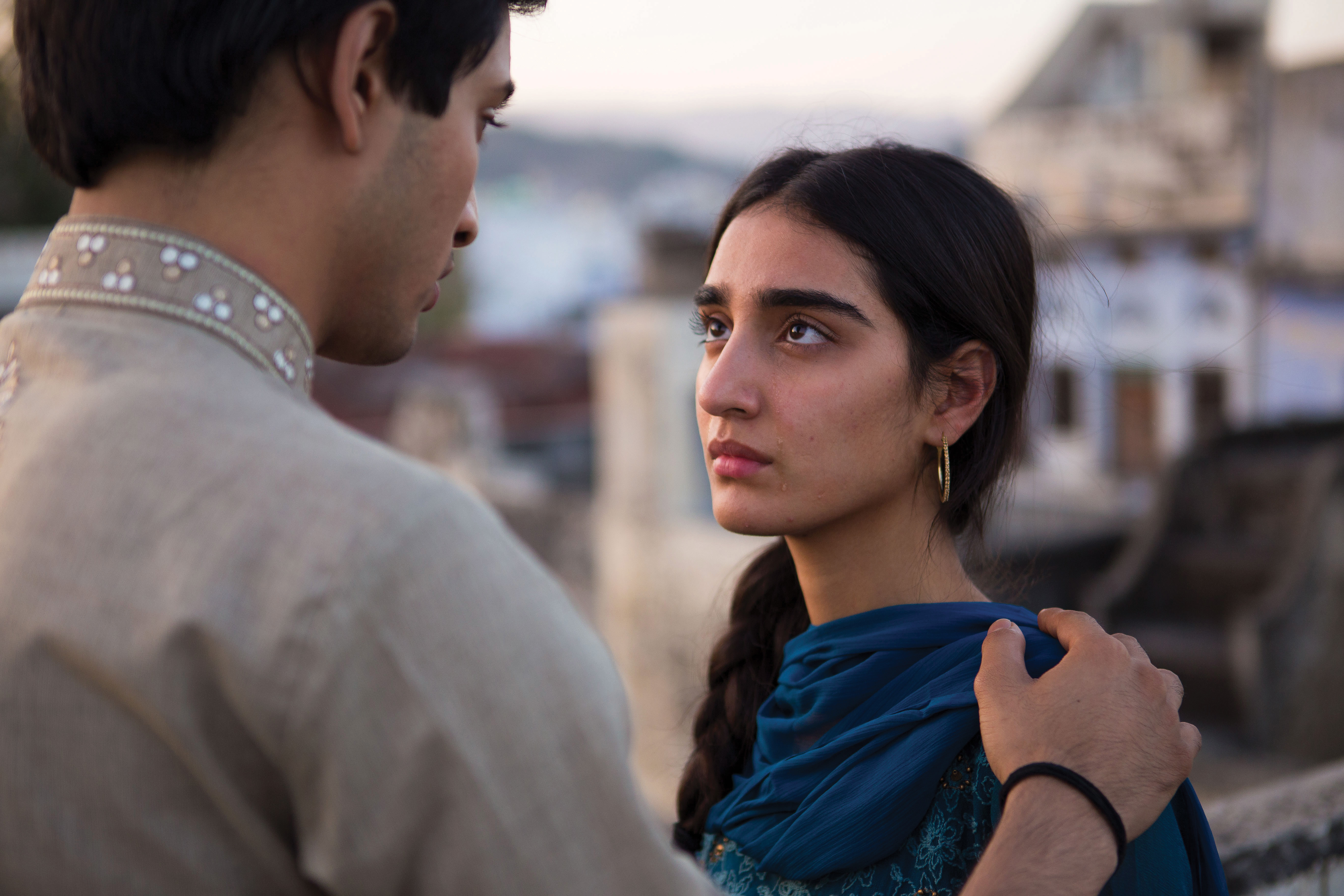The news travels to the rest of the Pakistani expat community, with the other parents insisting that an example must be set. Nisha decides, after talking to her parents – who seem to be willing to let her come home – to return to her family. Once in the car with her father, he begins berating her once again: did she not realize how her actions would reflect on her family? Did she not consider the honour of her family, and how hard it was for them to build a better life in Norway? It’s then that Nisha’s life as she knows it will change in a flash. A frantic Nisha realizes that her father is not taking her home.
Adil Hussain’s performance as the seemingly doting and mild-mannered father who becomes brutal and cruel when his “izzat” (honour) is threatened is truly harrowing; at the same time as he is carrying on normal conversations about cars and arranging boarding passes at the airport, fury is written on his face, and his grip on Nisha never lightens. There’s always an arm firmly around her shoulder or a hand gripped in his own. Where Mirza takes Nisha is Pakistan, to live with his family. Equally harrowing is Maria Mozhdah’s performance as Nisha; her sense of desperation is palpable, as is her complete and utter desolation when she realizes what is going on. She tries to escape after her father leaves, but the laneways around her family’s home are confusing, and she ends up back there, her aunt standing in the doorway, noting that it won’t be so easy to leave with the airport 350 kilometres away. Nisha persists, though, and in between helping her aunt with cooking and cleaning, she searches for her passport, and scouts out an Internet café where she frantically tries to send a message for help. It’s this act that has her aunt locking her up. Her uncle sits her down and breaks the news to her: learn to adapt, or it could be even worse than this. Learning to adapt begins with matches and her passport, which he then sets on fire.
Eight months on, Nisha is attending school, and learning, as she feels it, about her parents’ culture. “About your culture,” adds one of her classmates. She remains under the watchful eye of her aunt, accompanying her to the market, praying alongside her. Though she remains unhappy at times, she finds some solace in her new home: flying a kite on the rooftop, going to the market with her cousins and trying pani puri – and beginning a relationship with her cousin Amir (Rohit Saraf). It’s this relationship that, once again, puts Nisha in the middle of a firestorm. What begins as a series of seemingly innocent encounters — sharing earbuds to listen to music, fingertips brushing up against each other as they stroll the market, leads to something more daring, and the two sneak out of the house where they are discovered kissing by a police patrol. This encounter is so harrowing I could hardly stand to watch it, but the reaction of Nisha’s family – where she is once again accused of things she did not do, and forced to take total blame for what happened, is almost unbearable.
Mirza returns to Pakistan to take Nisha back to Norway, where her mother lays down new, strict rules: Nisha will not have a phone; she will wear a watch and keep strict track of her time; she must change schools so she will not have contact with her friends; her father will drive her to and from school. A letter from Child Welfare Services (which she is accused of having contacted, though how would she with every moment of her time watched over and accounted for), has her mother warning her to behave herself and tell the workers what her family wants them to hear.
What Will People Say is yet another example of a film that sets out the immigrant experience and the divide that inevitably happens between parents and children. I can’t help but be reminded of Belgian director Stefan Streker’s 2016 film Noces (“A Wedding”) that showed us the experience of the Pakistani immigrant community in Belgium; the father there, like the one in What Will People Say, is a shopkeeper, navigating between the culture his family finds themselves living in, and trying to preserve the culture and morality of his homeland within his own home and family. Both films traced the challenges faced by the children of those immigrants, who often feel more at home in their adopted communities than with those of their parents.
What Will People Say also attempts to show us that the need to straddle two cultures can take its toll on parents as well. I wish director Iram Haq (who based the film partly on her own experiences) had developed Mirza’s character more subtly – it is hard to understand how this doting father, who wants his daughter to be educated, perhaps becoming a doctor or an attorney, suddenly becomes so brutal towards her. There are small moments, though, where we see the constant pressure Mirza is put under, by his wife (who chides him for dancing at a gathering, and worse, encouraging the women to dance), by other expats who want an example to be set, and one brilliant moment where Adil Hussain’s performance is exceptionally strong: the family decides to arrange Nisha’s marriage to a Pakistani expat living in Canada, and we see that Mirza views it as an opportunity — the “problem” of Nisha will be solved, and Nisha, he suggests, could study or work. This idea is quickly dismissed by his wife and the family friends helping to arrange the marriage, and Mirza is a picture of utter defeat and discouragement when he realizes that this is a path that will not allow Nisha to have much of a life at all.
Iram Haq gives us a film that is complex even as it is emotionally harrowing – and as unbearable as some of it is to watch, Maria Mozhdah makes Nisha utterly compelling. There was never going to be a happy resolution to Nisha’s story, but there is, at least, a glimmer of hope in the end, and Haq’s film allows for a thoughtful exploration of the ideas of family, honour and identify.












